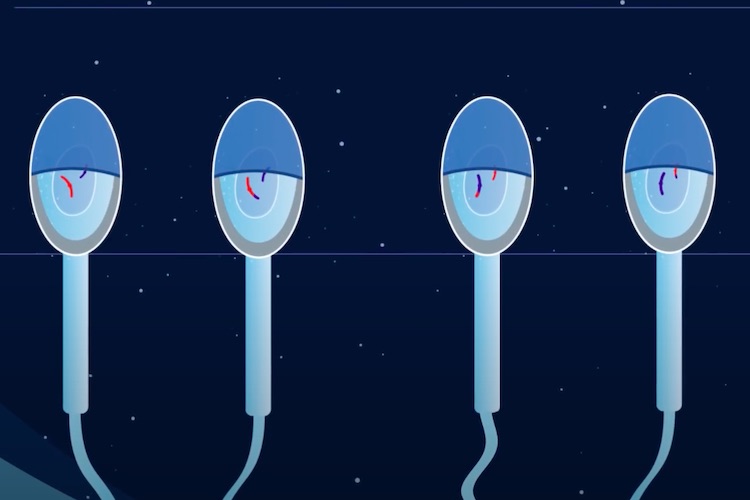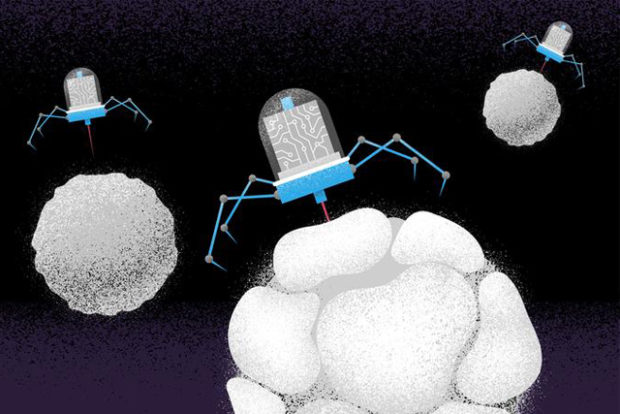Fruit flies diversify their offspring when sick
Fruit flies sense danger to their organism and influence the variability of their offspring accordingly
Serious Science - news | September 4, 2015

In August Science published a paper titled “Fruit flies diversify their offspring in response to parasite infection”. We have asked two of the authors of this research, Dr Nadia Singh, from North Carolina State University, and Dr Todd Schlenke, from to comment on this work.
The Study
In this study, we find that when parasitized, Drosophila melanogaster females increase the proportion of offspring they produce that is recombinant (their ‘recombination fraction’). We found this effect when females were infected with bacteria at the adult stage, and showed that the increase in the recombination fraction is not induced following other types of insults such as a sterile wound or the injection of heat-killed bacteria. Two distantly related species of bacteria were used, and both showed similar effects on recombination. This indicates that the increase in recombination fraction is not associated specifically with one bacterial species. Moreover, different strains of D. melanogaster show similar recombinational responses to bacterial infection, which indicates that this is likely to be a common response to infection in this species. We also found that infection of female D. melanogaster larvae by parasitic wasps induces a similar increase in the recombination fraction. In addition to illustrating that the response is not unique to a particular developmental stage, this finding is particularly interesting because Drosophila larvae are not actively producing eggs at the larval stage. So, the signal that parasitism triggers to yield an increased recombination fraction must be sustained across metamorphosis. The last major result in this study was a glimpse into the mechanisms underlying the increase in the recombination fraction associated with parasitism. Specifically, our study shows that the effect is not exclusively driven by an increase in the number of recombination events that occur during early meiosis. Rather, we find that in response to infection, transmission of chromosomes from parent to offspring is distorted in favor of recombinant chromosomes.
Background
The evolution of sexual reproduction remains one of the mostly hotly debated topics in evolutionary biology. Sex entails a mixing of parental genomes to create offspring with new genetic combinations. A potential benefit for this increased variability is described by the Red Queen hypothesis. Named for a quote from the Red Queen in Lewis Carroll’s Through the Looking Glass “Now, here, you see, it takes all the running you can do, to keep in the same place,” the hypothesis is grounded in the idea that diversification is advantageous when organisms find themselves in dynamic environments, such as those including interactions with coevolving organisms. Because of the constant generation and regeneration of combinations of alleles, sexually reproducing organisms have the potential to continuously adapt to changing selective pressures such as those imposed by parasites and predators.
Recombination is a genetic phenomenon whereby two copies of a chromosome exchange information, creating new chromosomes with novel genotypes. Recombination occurs during the production of gametes in sexual organisms and has been theoretically shown to impart long-term advantages when parasite infections are common. However, there is little direct evidence that the frequency of recombination within organisms changes in response to parasitism. We formulated a simple extension of the Red Queen hypothesis—if sex and recombination are beneficial over asexuality at the population level in the face of parasite pressure, then perhaps the frequency of recombination within individuals should increase transiently when that individual is infected. Although this had been tested in plants before, it had yet to be shown that animals are capable of plastically increasing their recombination fraction in response to parasite pressure.
Future Directions
From an evolutionary standpoint, it will be interesting to test for similar effects in other organisms. Determining how pervasive this phenomenon is may give clues into its importance in evolution. Do we humans produce different sorts of offspring (from a statistical genetics point of view) depending on the environmental insults we’ve experienced during our lives? Another key aspect of future work will be determining the adaptive significance of the parasite-associated increase in recombination. If it evolved via Red Queen dynamics, then it should result in increased fitness in the face of parasite infection for those lineages that use it. Finally, determining the mechanisms underlying the transmission distortion we observe, and identifying the sustainable signal that triggers the increase in recombination will be critical avenues of future research.
If you would like to contribute your own research, please contact us at [email protected]






























